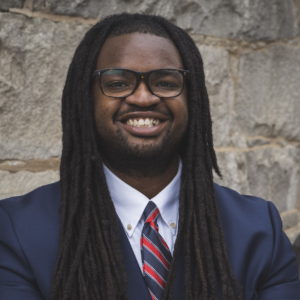Perhaps it is because he is new to the job, or perhaps it’s just his natural optimism, but Republican state party Vice Chairman Ryan Terrell sees a bright future for the New Hampshire GOP.
It is a different view from the dour outlook heard from many in the state party, still stinging from the GOP’s unexpectedly poor performance in the 2022 midterms. With weak incumbents like Sen. Maggie Hassan and an unpopular Democrat in the White House, Republicans still found a way to lose.
So, why is the 31-year-old New Orleans native feeling good about the NHGOP’s prospects?
“People are tired of losing. I’m certainly tired of losing,” Terrell told NHJournal in a podcast interview. “I think the general consensus is that people want results. And I’m really blessed and grateful that they believe that I can help lead them to some of those results. I’m overtly optimistic about our opportunities, and I’m looking forward to 2024 and beyond.”
At the end of January, the state committee elected Chris Ager as the party’s new chairman and, in a three-way race that took multiple ballots to decide, elected Terrell vice chair. Terrell also serves as a member of the state Board of Education, an election that also required multiple ballots. Led by progressive Andru Volinsky, the Democratic majority on the Executive Council rejected Terrell when Gov. Chris Sununu nominated him in 2020. Volinsky was forced to apologize for his racially-charged language about Terrell, having called him a “token” and saying his nomination was “demeaning.”
Terrell was elected to the board by a GOP majority in 2021, and now he provides firsthand insights about the importance of education and the power of school choice.
“I was born and raised in New Orleans. My mom made sure she always brought me to the best educational option that she had. In Louisiana, that meant charter schools,” Terrell said. “I went to a school that focused on developing skills around STEM and math. And all along the way I was involved in summer school programs. There was never a summer that I was sitting around not doing anything.”
Terrell’s education was interrupted by Hurricane Katrina, which sent his family scrambling.
“I was 14 years old and in eighth grade. I went to a couple of different schools. We were very transient at the time. We lived in and out of hotels. We survived off of MREs the first couple of years,” Terrell recalled.
“But all along the way, the thing that I had with me was my school uniform that I had packed when we [evacuated]. My mom said she didn’t care how long we were gone, I was going to go to somebody’s school. So, my whole background, the whole reason why I serve with so much passion on the State Board of Education, is that I personally know that education is not only one of the best engines for human prosperity, but it literally saved my life.”
And Terrell said he believes the education issue could also help save the New Hampshire Republican Party as parents become more aware of how out of touch Democrats are on the issue.
“Granite Staters are extremely reasonable and they just want the best results and best options for their children,” Terrell said. “This is not an attack against public school teachers. This is really just making sure that children — the most important stakeholders of it all — have the best options that fit all of their different learning styles and anything that’s going to work for them to succeed after they graduate.”
Terrell said the new NHJournal poll showing overwhelming support for parental rights is an opportunity for the GOP to reconnect with voters on education issues.
“Parents are coming to the table and saying they want to actively play a role in what’s being taught. They want to support local school districts to make sure that their students are learning the material. And they don’t want administrators or teachers to be making decisions about their children that are ultimately their responsibility as their parents or caregivers,” Terrell said.
“I’m also hoping that lawmakers can respond in a bipartisan way so that we can continue to build an infrastructure for education that helps students, gets parents and families involved, and removes barriers from education. I really hope that we can work forward to that.”





